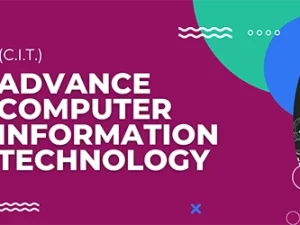Introduction
Education is a growing sector which requires dealing and educating students with different learning capabilities/styles, and offers an exciting career with its own challenges and rewards. Elementary education is the first phase of education usually preceded by nursery or Montessori school education and followed by middle and secondary school education. In Elementary education, children are usually engaged in classes with one teacher, who becomes responsible for their education and well-being for the entire academic year. The continuity with a single teacher and the opportunity to build a close relationship within the class is a distinguishing characteristic of Elementary education. The teacher guides the students based on their abilities, competency and knowledge, and becomes a role model for them. The basic objective of a 2.5 years Bachelor’s in Education (Elementary) program is to equip prospective teachers with teaching tools and an in-depth knowledge to meet tomorrow’s educational challenges. Virtual University of Pakistan aims at developing dynamic and skilled elementary school teachers who are fluent in the use of latest technologies and well-versed with the latest advancements in knowledge and pedagogy.
Program Objectives
After completing 2.5 years Bachelors of Education degree, the prospective teachers will:
- Develop an understanding of the psychology of young learners;
- Foster creative thinking among their students for construction of knowledge;
- Develop communication skills and use modern information technology for school teaching;
- Acquire competencies relevant to subject specific pedagogy, curriculum development, its transaction and evaluation;
- Make pedagogical analysis of the subjects they are to teach at the elementary stage;
- Develop positive attitude to teaching profession; and
- Use innovative methods of teaching.
Admission Eligibility Criteria
-
BA/ B.Sc. (equivalent to 14 years of education) with at least 45% marks or CGPA 2.0 out of 4 from a recognized university/institution.
Note
-
Candidates having less than 45% marks will be eligible for admission after successful completion of “Zero Semester”.
Course Exemption
Course exemption may be allowed as per University regulations on course to course basis to those having HEC recognized one year (30 Credit hours) post-graduate diploma in Education or Postgraduate Diploma in Early Childhood Education. This course exemption shall not reduce the duration of the study.
Duration
It is a 2.5 years full time study program and is spread over five semesters. Each semester has at least 18 weeks of duration for teaching and examinations etc.
Courses of Study
Click here to View Study Scheme
Assessment of Study Progress
The students study progress evaluation mechanism is based on continuous assessment throughout the semester by giving assignments, quizzes, Graded Discussion Boards (GDBs), presentations (wherever applicable), mid-term and final-term examinations at VU designated campuses. The mid-term and final-term examinations usually count for 80 to 85% of the total marks for a course.
Project/Teaching Practices/Teaching Internship
Students are required to complete Project/Teaching Practices/Teaching Internship of 9 credit hours during B.Ed. Elementary (2.5-year) program. The choice of the final project is at the student’s discretion. However, consultation with the student advisor is compulsory. Students have to submit a detailed write-up of the Project and may be required to give a presentation.
Award of Degree
From Fall 2021, to become eligible for the award of B.Ed. (2.5-year) degree in elementary education, the student is required to complete at least 91 credit hours with minimum CGPA (Cumulative Grade Point Average) of 2.00 out of 4.
Whereas, for all previously enrolled batches, the students are required to complete at least 90 credit hours with minimum CGPA 2.00 out of 4.00.
Fee Structure
Click here to View Fee Structure
Disclaimer!
-
The courses may be revised from time to time as a result of continuous review to bring them at par with courses being taught at top-class foreign and national universities. While reviewing the courses, needs of local educational context and job market are also given full consideration.
-
The University reserves the right to change fee structure from time to time.








